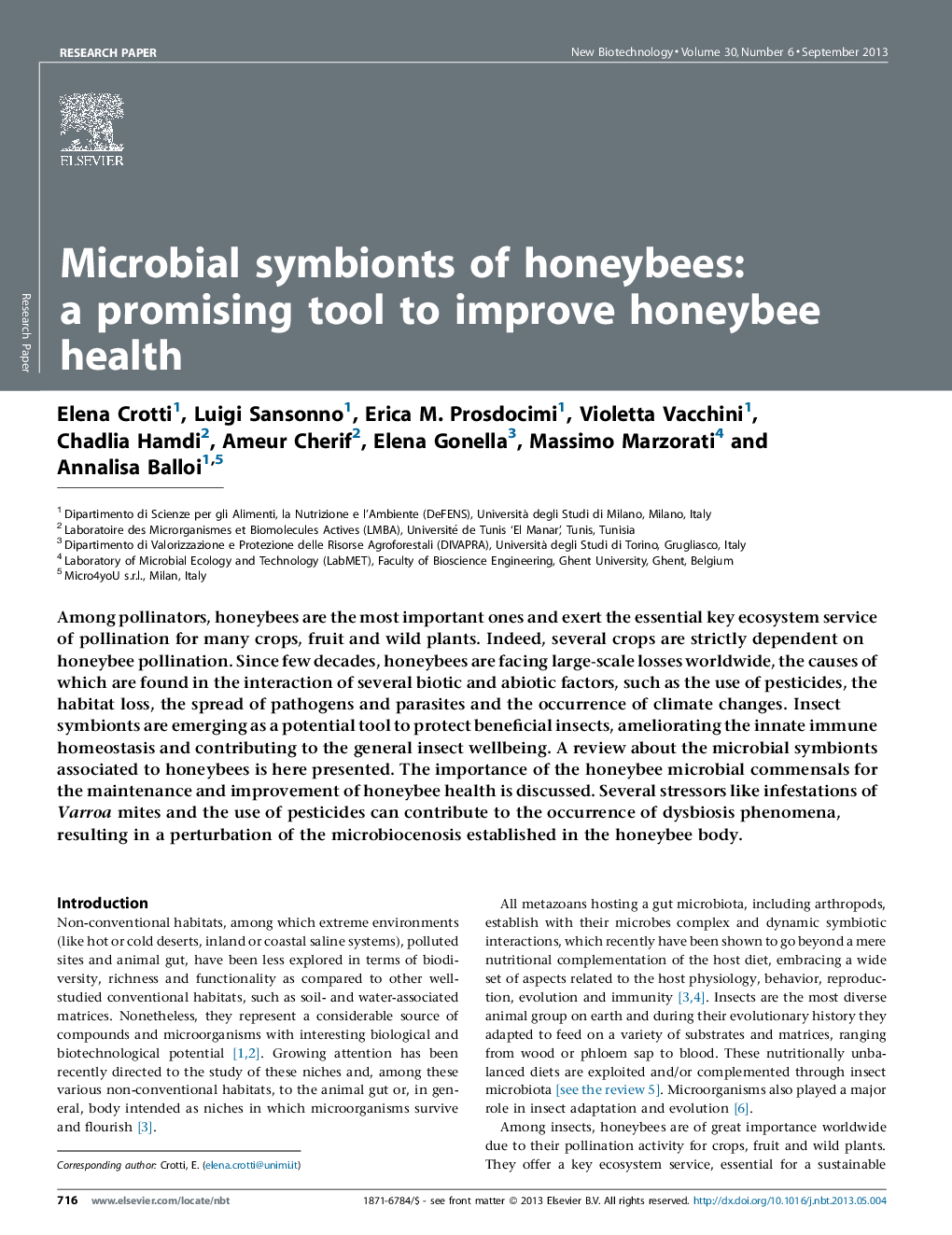| Article ID | Journal | Published Year | Pages | File Type |
|---|---|---|---|---|
| 33277 | New Biotechnology | 2013 | 7 Pages |
•Different biotic and abiotic stressors are affecting honeybees and large losses have been reported worldwide impacting economically agriculture.•Microbial symbionts are emerging as modulators of the innate immune system and, more in general, of the insect health.•Because of their crucial involvement in insect physiology, microbial symbionts could represent a powerful tool to preserve and improve insect health through the application of Microbial Resource Management (MRM) concept.
Among pollinators, honeybees are the most important ones and exert the essential key ecosystem service of pollination for many crops, fruit and wild plants. Indeed, several crops are strictly dependent on honeybee pollination. Since few decades, honeybees are facing large-scale losses worldwide, the causes of which are found in the interaction of several biotic and abiotic factors, such as the use of pesticides, the habitat loss, the spread of pathogens and parasites and the occurrence of climate changes. Insect symbionts are emerging as a potential tool to protect beneficial insects, ameliorating the innate immune homeostasis and contributing to the general insect wellbeing. A review about the microbial symbionts associated to honeybees is here presented. The importance of the honeybee microbial commensals for the maintenance and improvement of honeybee health is discussed. Several stressors like infestations of Varroa mites and the use of pesticides can contribute to the occurrence of dysbiosis phenomena, resulting in a perturbation of the microbiocenosis established in the honeybee body.
